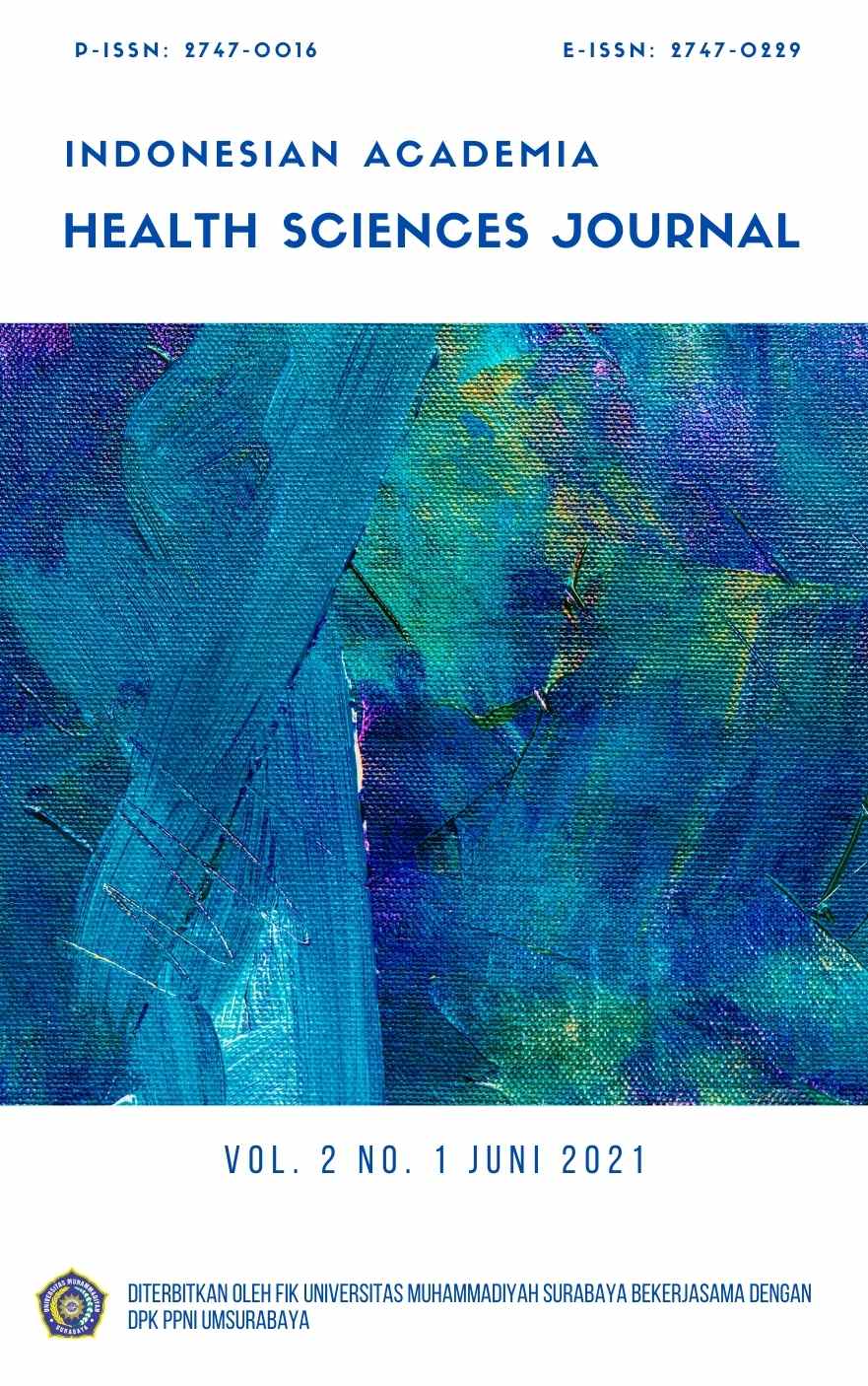Overview of Sexual Function in Cervical Cancer Patients After Getting Chemotherapy
Abstract
Introduction: Sexual problems sometimes happened in cervical cancer patient, it related to body image, sexual role function, sexual function, and reproductive ability. The purpose of this study was to identify sexual function that occurs in patients with cervical cancer after chemotherapy. Method: A case study with descriptive qualitative in Indonesian Cancer Foundation, East Java Branch, Surabaya City. Participants in this study amounted to 3 people. Sexual function in cancer patients was measured using the Female Sexual Function Index (FSFI) questionnaire. Data Anlysis used descriptive analysis. Results: Based on the results of the research on filling out the FSFI questionnaire, the results of the full scale score of respondent 1 with a score of 1.2, respondent 2 with a score of 1.6 and respondent 3 with a score of 19.3 were obtained. Respondent 1 found that the individual experienced sexual dysfunction with the lowest score of 0 in the arousal, lubrication, orgasm, and satisfaction domains. Respondent 2 found that the individual experienced sexual dysfunction with the lowest score of 0 in the arousal, lubrication, orgasm, and pain domains. In respondent 3, it was found that the individual did not experience sexual dysfunction with the lowest 0 only in the lubrication domain number questions 9 and 10, and the highest scores 3 and 4 in the arousal and satisfaction domain. Conclusion: This shows that two respondents experienced sexual dysfunction, thus requiring sexuality needs intervention in order to fulfill the patient's needs.
Full text article
Authors
Copyright (c) 2024 Fathiya Lutfil Yumni, Gita Marini, Dhiyah Aini Nissa Firdaus, Diah Priyantini

This work is licensed under a Creative Commons Attribution-NonCommercial-NoDerivatives 4.0 International License.

